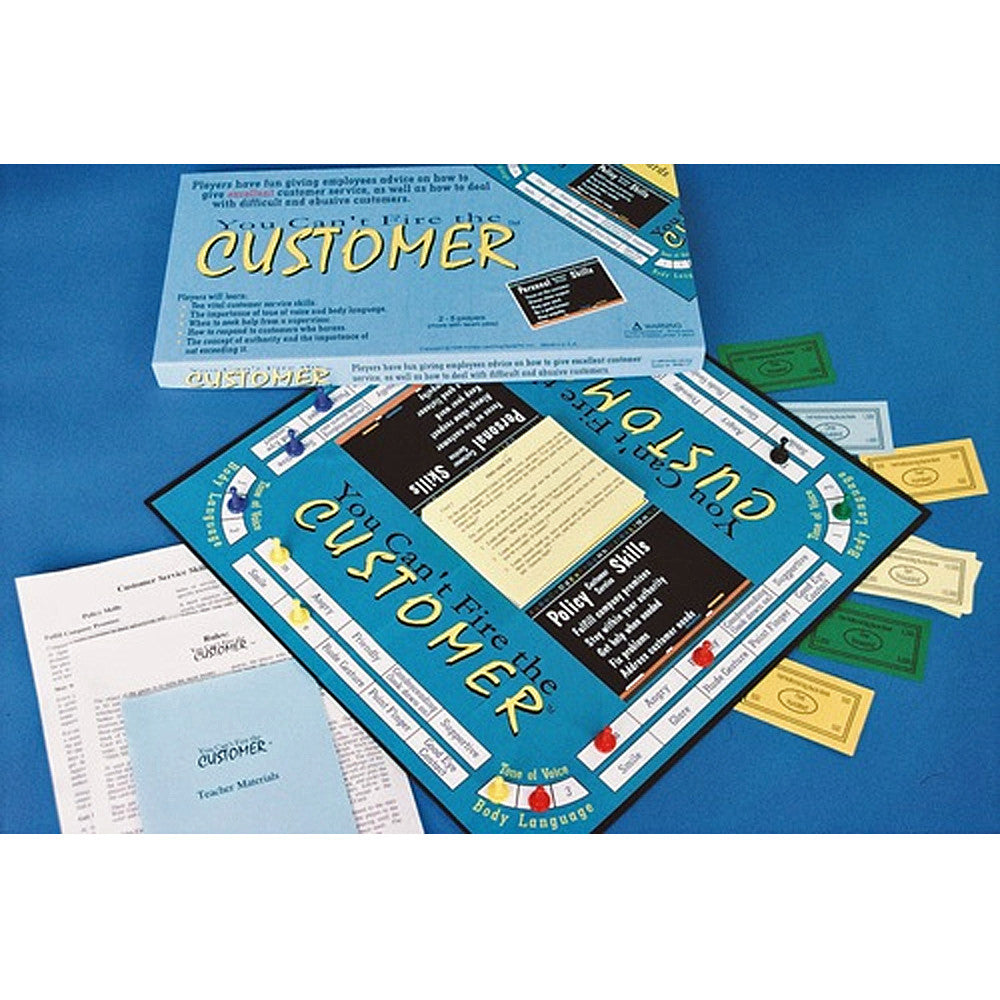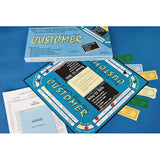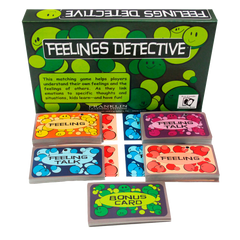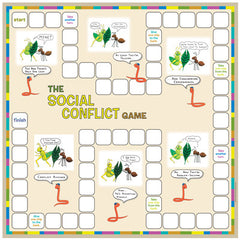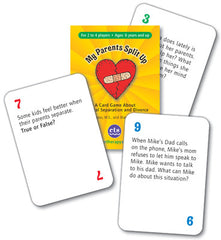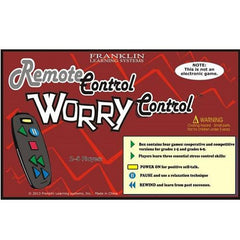You Can't Fire the Customer*
- Help prepare students for the challenges of the customer service industry
- Students role-play as a mentor to a new employee
- Focus on 10 important skills of customer service
- Discuss appropriate tone and body language
- Grades: 8-12
Customer Service has become a major element in the strategic plans of all successful companies today. Companies expect employees to give excellent (not just good) service to all customers, and to successfully handle difficult customers who can be hard-to-please, uncertain, angry, insulting, or even threatening. It is often the failure to deal successfully with these difficult customers that leads to reprimands and termination for employees. This engaging board game gives students the knowledge and confidence that they need in order to handle the average customer and the difficult customer. The game focuses on ten important skills and how to use them in realistic situations.
- Policy Skills (what to do)
- Fulfill company promises
- Stay within your authority
- Get help when needed
- Fix problems
- Address customer needs
- Personal Skills (how to do it)
- Focus on the customer
- Always show respect
- Keep your word
- Be a good listener
- Show empathy
In the game, players earn play money by giving good advice to Linda, a new employee at Office Giant, an office supplies superstore. In the course of the game, Linda deals with customers on the phone, at the Service Desk, and on the sales floor. She encounters some cooperative customers and a range of difficult customers. Players then enhance their advice with appropriate tone of voice and body language.
Learning Objectives:
- Learn essential customer service skills.
- Learn the special relationship between the customer and the employee.
- Learn when to handle a tough situation and when to seek help from a supervisor.
- Understand the concept of authority and the importance of not exceeding it.
- Learn the importance of knowing company policy and applying it to problems.
- Learn the importance of appropriate tone of voice and body language.
- Learn critical thinking skills by evaluating alternative ways of responding to customers.

